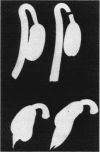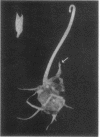Abstract
Explants were isolated from 6-day-old etiolated bean seedlings (Phaseolus vulgaris L. cv. Black Valentine) containing the cotyledons with 4 mm of hypocotyl just below the node and/or the epicotyl. During incubation on distilled water, uneven growth of the hypocotyl or epicotyl occurred resulting in the formation of a hook. The more rapid growth of the side which became convex was not dependent upon the presence of the slower growing concave side. It was concluded that the main axis has an intrinsic capacity for asymmetric growth. The growth leading to hook formation was inhibited by α-naphthaleneacetic acid at concentrations above 0.2 milligram per liter.
Full text
PDF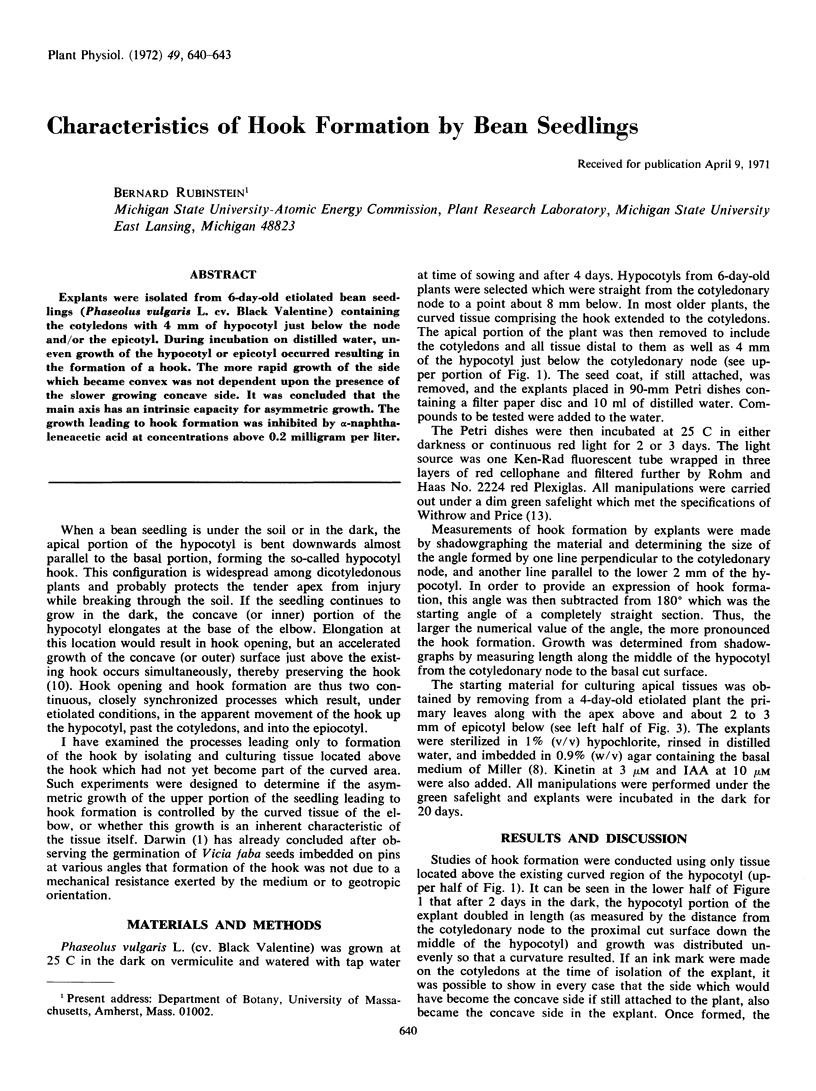
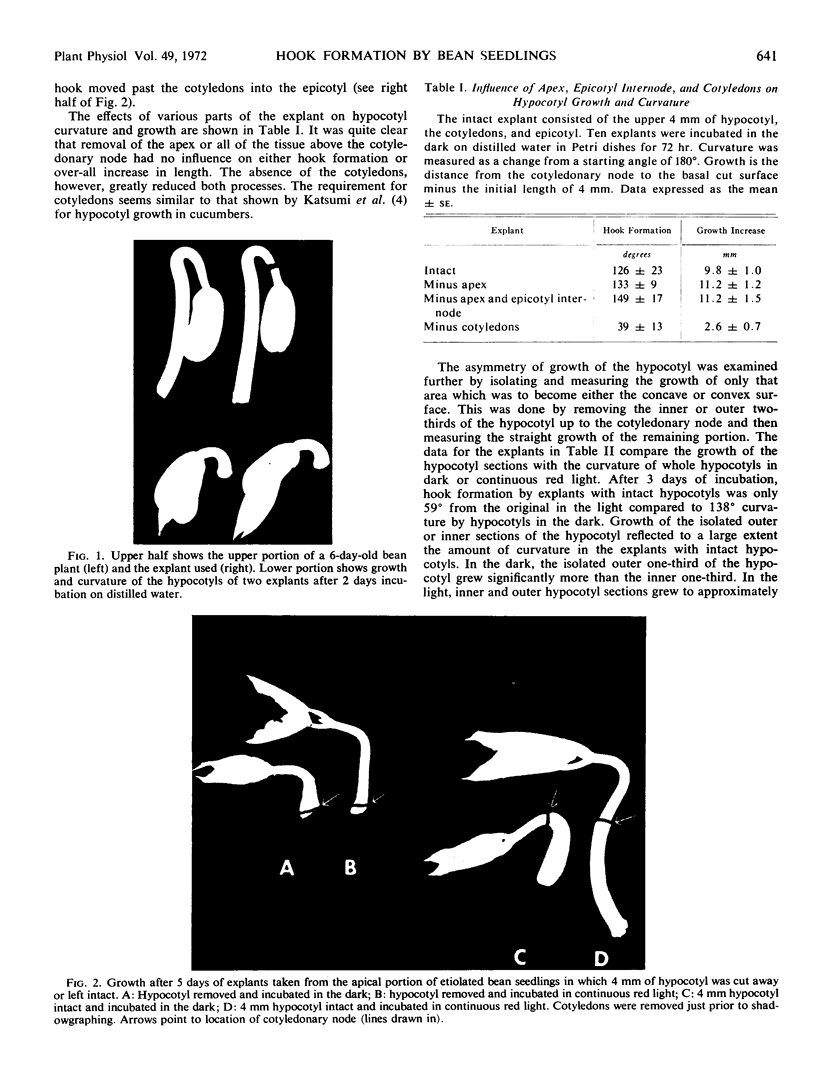
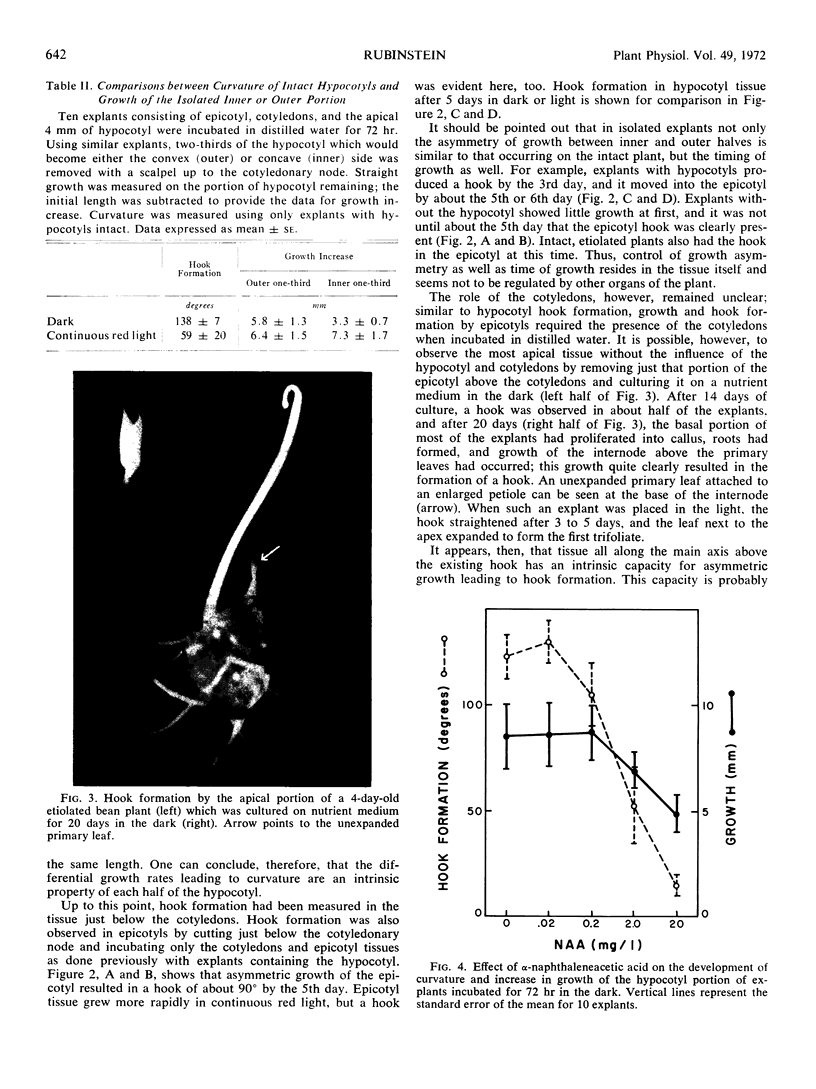
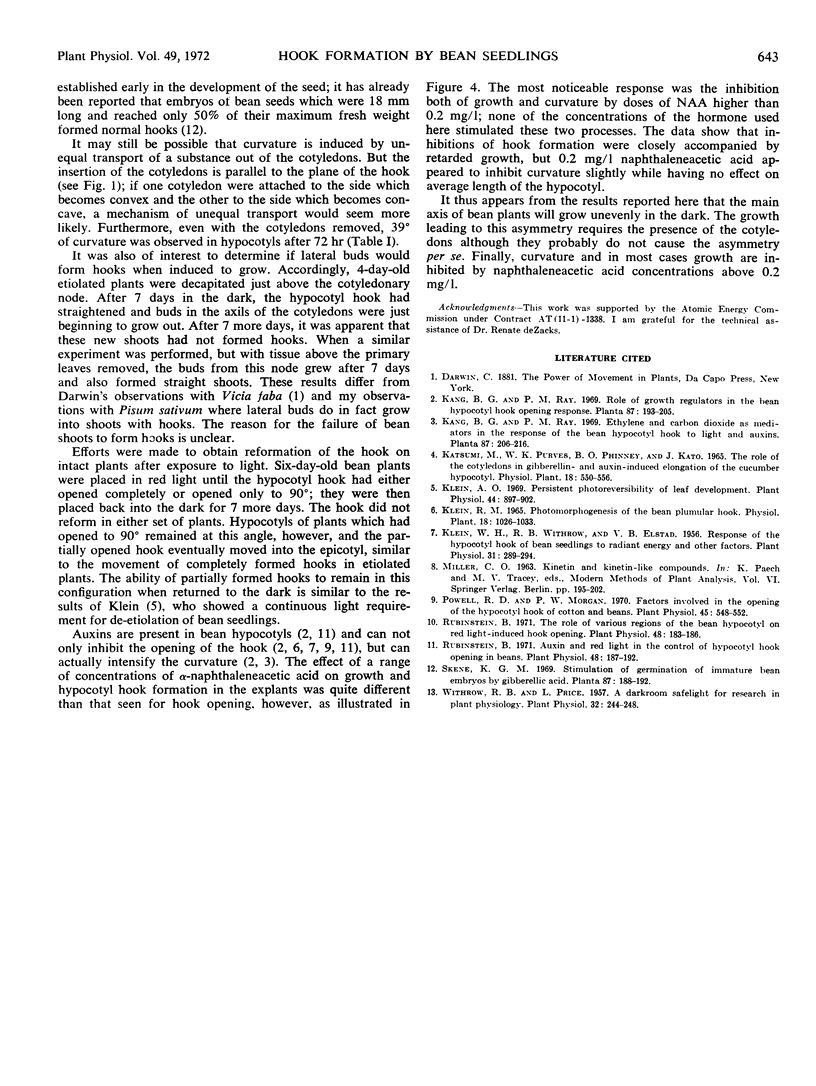
Images in this article
Selected References
These references are in PubMed. This may not be the complete list of references from this article.
- Klein A. O. Persistent photoreversibility of leaf development. Plant Physiol. 1969 Jun;44(6):897–902. doi: 10.1104/pp.44.6.897. [DOI] [PMC free article] [PubMed] [Google Scholar]
- Klein W. H., Withrow R. B., Elstad V. B. Response of the Hypocotyl Hook of Bean Seedlings to Radiant Energy and Other Factors. Plant Physiol. 1956 Jul;31(4):289–294. doi: 10.1104/pp.31.4.289. [DOI] [PMC free article] [PubMed] [Google Scholar]
- Powell R. D., Morgan P. W. Factors involved in the opening of the hypocotyl hook of cotton and beans. Plant Physiol. 1970 May;45(5):548–552. doi: 10.1104/pp.45.5.548. [DOI] [PMC free article] [PubMed] [Google Scholar]
- Rubinstein B. Auxin and red light in the control of hypocotyl hook opening in beans. Plant Physiol. 1971 Aug;48(2):187–192. doi: 10.1104/pp.48.2.187. [DOI] [PMC free article] [PubMed] [Google Scholar]
- Withrow R. B., Price L. A Darkroom Safelight for Research in Plant Physiology. Plant Physiol. 1957 May;32(3):244–248. doi: 10.1104/pp.32.3.244. [DOI] [PMC free article] [PubMed] [Google Scholar]



